 | TODAY IN SCIENCE HISTORY
NEWSLETTER - 5 JULY |
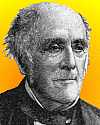 On 5 Jul 1841, Thomas Cook (1808-1892) arranged a special train between Leicester and Loughborough in England for a temperance meeting. It is believed to be the first publicly advertised excursion train in England. From this initiative grew the worldwide travel agency Thomas Cook and Son. On 5 Jul 1841, Thomas Cook (1808-1892) arranged a special train between Leicester and Loughborough in England for a temperance meeting. It is believed to be the first publicly advertised excursion train in England. From this initiative grew the worldwide travel agency Thomas Cook and Son.
His Obituary in Railway News (1892) gives more details of Cook's life, and the expansion of his business.
|
 On 5 Jul 1996, Dolly a cloned sheep, was born at the Roslin Institute, Edinburgh, Scotland. On 5 Jul 1996, Dolly a cloned sheep, was born at the Roslin Institute, Edinburgh, Scotland.
Today's Science Store pick is: The Second Creation: Dolly and the Age of Biological Control, by Ian Wilmut, et al. Written by the noted science author Colin Tudge, the book is based on interviews with Ian Wilmut and Keith Campbell, the scientists who cloned Dolly the sheep. They reveal their contribution to genetic engineering and cloning, and the control that science has over the process of life. The book's aim is to explain the story of how and why they came to cloning sheep and the implications for the future, from curing diseases to human cloning. Price $16.95, save 9%, New $15.41. Also available Used from $0.01 (as of time of writing).
For picks from earlier newsletters, see the Today in Science Science Store home page. | |
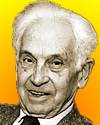
| "Biology can be divided into the study of proximate causes, the study of the physiological sciences (broadly conceived), and into the study of ultimate (evolutionary) causes, the subject of natural history." - Ernst Mayr, German-American biologist (born 5 Jul 1904)  |
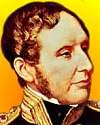 | "On becoming very intimate with (the ship's captain), I heard that I had run a very narrow risk of being rejected, on account of the shape of my nose! He was an ardent disciple of Lavater, and was convinced that he could judge a man's character by the outline of his features. He doubted whether anyone with my nose could possess sufficient energy and determination for the voyage. I think he was well-satisfied that my nose had spoken falsely." - The Beagle's Captain (born 5 Jul 1805) in quiz below, had this opinion of Charles Darwin upon their meeting. The quote is by Darwin.  |
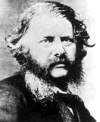
| "The law of the conservation of energy is already known, viz. that the sum of the actual and potential energies in the universe is unchangeable." (5 Jan 1853) - William Rankine, Scottish engineer and physicist (born 5 Jul 1820)  |
| Before you look at today's web page, see if you can answer some of these questions about the events that happened on this day. Some of the names are very familiar. Others will likely stump you. Tickle your curiosity with these questions, then check your answers on today's web page. |
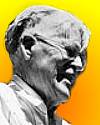
|  Andrew Ellicott Douglass, born 5 Jul 1867, was an American astronomer and archaeologist who established the principles of dendrochronology. Andrew Ellicott Douglass, born 5 Jul 1867, was an American astronomer and archaeologist who established the principles of dendrochronology.
 What is dendrochronology? |
 |  A British naval officer, hydrographer, and meteorologist was born 5 Jul 1805, who commanded the voyage of HMS Beagle, aboard which Charles Darwin sailed around the world as the ship's naturalist. A British naval officer, hydrographer, and meteorologist was born 5 Jul 1805, who commanded the voyage of HMS Beagle, aboard which Charles Darwin sailed around the world as the ship's naturalist.
 Can you name this naval officer? |
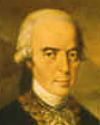
|  Antonio de Ulloa (1716-1795) was a Spanish scientist and naval officer who discovered an element. In 1735, the French and Spanish governments sent an scientific expedition to Peru and Equador to measure a degree of meridian at Quinto, close to the equator. Ulloa was one of the officers in charge. In 1744, the ship on which he returned was captured by the British. As a prisoner, hw was treated respectfully by the English naval officers for they "were not at war with the arts and sciences." The log of his voyage to Peru published in 1748 contains a description of the new element. Antonio de Ulloa (1716-1795) was a Spanish scientist and naval officer who discovered an element. In 1735, the French and Spanish governments sent an scientific expedition to Peru and Equador to measure a degree of meridian at Quinto, close to the equator. Ulloa was one of the officers in charge. In 1744, the ship on which he returned was captured by the British. As a prisoner, hw was treated respectfully by the English naval officers for they "were not at war with the arts and sciences." The log of his voyage to Peru published in 1748 contains a description of the new element.
 Which element did he discover? Which element did he discover? |
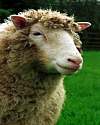
|  On 5 Jul 1996, Dolly, a cloned sheep, was born. Scientists had replaced the nucleus of an egg cell with the nucleus from a parent cell - in Dolly's case, an udder cell. Somehow, the egg cell reprogrammed the donated DNA contained within its new nucleus, and Dolly was the result On 5 Jul 1996, Dolly, a cloned sheep, was born. Scientists had replaced the nucleus of an egg cell with the nucleus from a parent cell - in Dolly's case, an udder cell. Somehow, the egg cell reprogrammed the donated DNA contained within its new nucleus, and Dolly was the result
 In what country was Dolly born? |
When you have your answers ready to all the questions above, you'll find all the information to check them, and more, on the July 5 web page of Today in Science History. Or, try this link first for just the brief answers.
Fast answers for the previous newsletter for July 4: Rube Goldberg; the distances of galaxies; Marie Curie; Thomas Jefferson; Crab Nebula; Japan; seven months.
|
 If you enjoy this newsletter, the website, or wish to offer encouragement or ideas, please send feedback by using your mail reader Reply button. If you enjoy this newsletter, the website, or wish to offer encouragement or ideas, please send feedback by using your mail reader Reply button. |
--
If you do not want to receive any more newsletters,
Unsubscribe To update your preferences and to unsubscribe visit
this link 


 On 5 Jul 1841, Thomas Cook (1808-1892) arranged a special train between Leicester and Loughborough in England for a temperance meeting. It is believed to be the first publicly advertised excursion train in England. From this initiative grew the worldwide travel agency Thomas Cook and Son.
On 5 Jul 1841, Thomas Cook (1808-1892) arranged a special train between Leicester and Loughborough in England for a temperance meeting. It is believed to be the first publicly advertised excursion train in England. From this initiative grew the worldwide travel agency Thomas Cook and Son.



 Andrew Ellicott Douglass, born 5 Jul 1867, was an American astronomer and archaeologist who established the principles of dendrochronology.
Andrew Ellicott Douglass, born 5 Jul 1867, was an American astronomer and archaeologist who established the principles of dendrochronology. What is dendrochronology?
What is dendrochronology?
 A British naval officer, hydrographer, and meteorologist was born 5 Jul 1805, who commanded the voyage of HMS Beagle, aboard which Charles Darwin sailed around the world as the ship's naturalist.
A British naval officer, hydrographer, and meteorologist was born 5 Jul 1805, who commanded the voyage of HMS Beagle, aboard which Charles Darwin sailed around the world as the ship's naturalist. Can you name this naval officer?
Can you name this naval officer?
 Antonio de Ulloa (1716-1795) was a Spanish scientist and naval officer who discovered an element. In 1735, the French and Spanish governments sent an scientific expedition to Peru and Equador to measure a degree of meridian at Quinto, close to the equator. Ulloa was one of the officers in charge. In 1744, the ship on which he returned was captured by the British. As a prisoner, hw was treated respectfully by the English naval officers for they "were not at war with the arts and sciences." The log of his voyage to Peru published in 1748 contains a description of the new element.
Antonio de Ulloa (1716-1795) was a Spanish scientist and naval officer who discovered an element. In 1735, the French and Spanish governments sent an scientific expedition to Peru and Equador to measure a degree of meridian at Quinto, close to the equator. Ulloa was one of the officers in charge. In 1744, the ship on which he returned was captured by the British. As a prisoner, hw was treated respectfully by the English naval officers for they "were not at war with the arts and sciences." The log of his voyage to Peru published in 1748 contains a description of the new element. Which element did he discover?
Which element did he discover? 
 On 5 Jul 1996, Dolly, a cloned sheep, was born. Scientists had replaced the nucleus of an egg cell with the nucleus from a parent cell - in Dolly's case, an udder cell. Somehow, the egg cell reprogrammed the donated DNA contained within its new nucleus, and Dolly was the result
On 5 Jul 1996, Dolly, a cloned sheep, was born. Scientists had replaced the nucleus of an egg cell with the nucleus from a parent cell - in Dolly's case, an udder cell. Somehow, the egg cell reprogrammed the donated DNA contained within its new nucleus, and Dolly was the result In what country was Dolly born?
In what country was Dolly born? If you enjoy this newsletter, the website, or wish to offer encouragement or ideas, please send feedback by using your mail reader Reply button.
If you enjoy this newsletter, the website, or wish to offer encouragement or ideas, please send feedback by using your mail reader Reply button. 

Δεν υπάρχουν σχόλια:
Δημοσίευση σχολίου